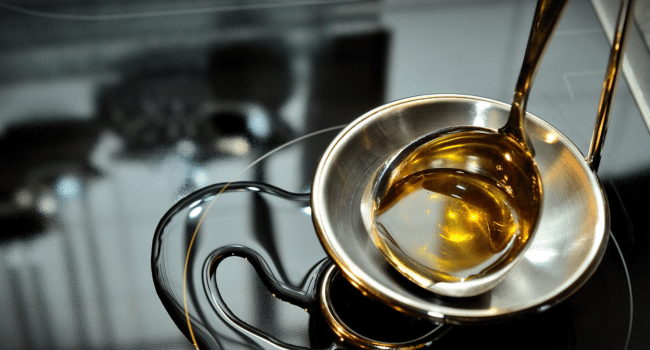Table of Contents
Reliable old cooking oil disposal prevents kitchen hazards that range from annoying to legitimately dangerous. Used cooking oil sitting around in containers can go rancid, creating foul odors and potentially attracting pests. More seriously, improper storage or disposal creates fire risks that insurance statistics link to thousands of kitchen fires annually. Grease fires are particularly dangerous because water makes them worse rather than extinguishing them. According to fire safety research, cooking oil that’s improperly stored near heat sources or disposed of while still hot has caused residential fires that result in millions in property damage each year. Beyond fire risks, the drain problems caused by pouring oil down sinks create backup situations where wastewater floods into homes, bringing health hazards and costly repairs.
Immediate Cooling and Safety Protocols
Right after cooking, used oil is at its most dangerous. Hot oil can cause severe burns—the temperature can be 180-200°C or even higher depending on what you were cooking. Never try to move hot oil immediately. Let it sit in the original cooking vessel until it reaches room temperature, which usually takes at least 30-45 minutes for larger amounts. Some people speed this up by moving the pot to a heat-resistant surface away from the stove, but never add cold water to speed cooling because the temperature difference causes violent splattering. Once cool enough to touch the outside of the container, you can start thinking about transfer. Keep kids and pets away from cooling oil—it looks harmless sitting there but stays hot enough to cause injury longer than most people expect.
Container Selection That Prevents Leaks
The container you use for storing used oil matters more than you’d think. Glass jars are stable but can break if dropped, and they’re heavy when full. Heavy-duty plastic containers are usually the better choice—look for HDPE plastic (recycling code 2) which withstands oil without degrading. Metal cans work too but can rust over time, especially if there’s any water contamination in the oil. The lid needs to seal tightly to prevent spills and contain smells. Some people use original cooking oil bottles, which works fine for small amounts. Whatever you choose, never fill containers to the very top—leave at least 2-3cm of space to allow for expansion and prevent overflow if the container gets jostled. Store filled containers upright in a secure spot where they won’t get knocked over, away from heat sources like radiators or appliances.
Drain Blockage Prevention
This is where unreliable disposal becomes expensive fast. Cooking oil solidifies at different temperatures depending on its type—coconut oil solidifies around 24°C, butter at 32°C, and animal fats even higher. Once solid, it sticks to pipe walls and traps other debris, creating blockages that grow over time. Initial symptoms are slow drains—water takes longer to clear than normal. Then comes complete blockages where water backs up entirely. Professional drain cleaning costs anywhere from a few hundred to over a thousand dollars depending on severity and access difficulty. In apartment buildings, blocked drains can affect multiple units, creating liability issues. Chemical drain cleaners often don’t work on oil blockages and can damage pipes, especially older ones. The prevention is simple—never pour oil down any drain, not even in small amounts, and not even if you run hot water afterward like some people suggest.
Regular Maintenance Schedule
Setting up a routine makes disposal reliable instead of something you avoid until it becomes a problem. Decide on a frequency based on how much you cook with oil—maybe weekly if you deep fry regularly, or monthly if it’s occasional. Mark it on a calendar or set a phone reminder. When your storage container is about three-quarters full, that’s your signal to dispose of it properly before it becomes unwieldy or starts leaking. Having a backup container ready means you’re never tempted to rush or skip proper disposal. Some people keep a small funnel and coffee filters on hand to strain out food particles before storing oil, which extends how long it can sit without getting nasty and makes recycling facilities more likely to accept it.
